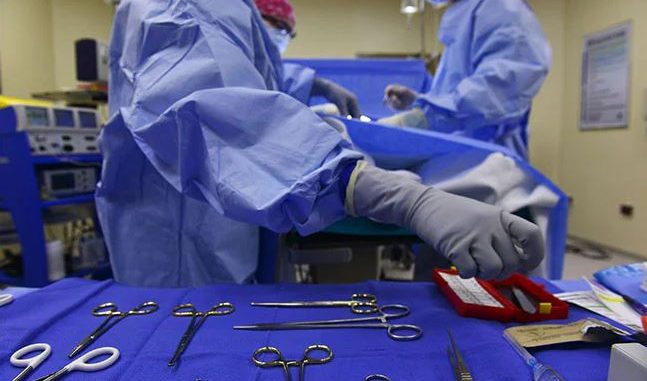
US Surgeons Complete 61-Day Experiment: Transplant Pig Kidney into Brain-Dead Human.

Washington, USA – September 15, 2023 – US surgeons have completed an experimental procedure where they transplanted a genetically modified pig kidney into a brain-dead patient, marking a significant breakthrough in the field of cross-species transplants.
The 61-day experiment, conducted by the New York University Langone Transplant Institute, is part of ongoing research to advance xenotransplantation techniques, primarily utilizing donated bodies for scientific purposes.
Addressing Organ Shortages
The United States currently has over 103,000 people awaiting organ transplants, with 88,000 individuals in need of kidneys.
This groundbreaking experiment offers hope for addressing organ shortages and saving lives.
Positive Outcomes
Dr. Robert Montgomery, the director of the New York University Langone Transplant Institute, expressed optimism about the results.
He stated, “We have learned a great deal throughout these past two months of close observation and analysis, and there is great reason to be hopeful for the future.” This marks the fifth xenotransplant performed by Dr. Montgomery, who previously conducted the world’s first genetically modified pig kidney transplant in September 2021.
Overcoming Rejection Challenges
To overcome rejection challenges, the research team “knocked out” a specific gene responsible for alpha-gal, a biomolecule often targeted by human antibodies. This modification prevented immediate rejection.
The donor pig used in the experiment was from a herd cultivated by Revivicor, a biotech company based in Virginia. The FDA has approved this herd as a source of meat for individuals with alpha-gal allergies, which are caused by certain tick bites.
Pigs as Ideal Donors
Pigs are considered ideal donors for humans due to factors such as organ size, rapid growth, large litter, and their existing role as a food source. Previous xenotransplantation efforts focused on primates, with limited success.
Ethical Considerations
While these advancements hold great promise, they also raise ethical concerns.
Recent research in China involving hybrid pig-human kidneys in pig embryos stirred debate, as some human cells were found in the pigs’ brains, sparking discussions about the ethical boundaries of cross-species transplantation.
Xenotransplantation remains a field of great potential in addressing organ shortages, and further research and ethical discussions will be crucial as this science continues to progress.
